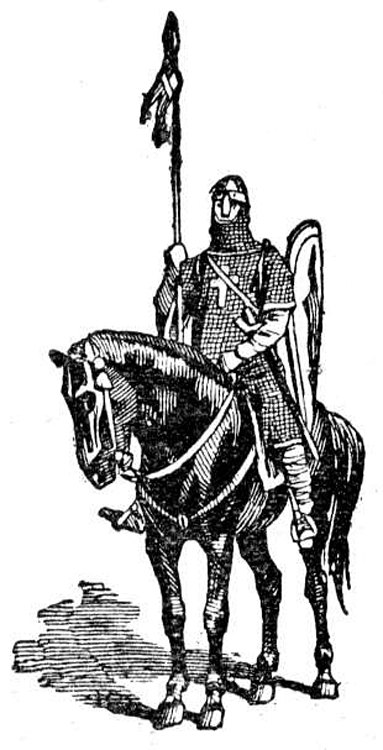Old Game Notebook: Byzantine Knight vs. D&D Paladin

While rooting through some of our old game materials I found the following item written by my father, Michael H. Varhola, titled "Byzantine Knight vs. D&D Paladin" and written no later than 1986, on a "Garfield" memo pad. It tied in with an D&D campaign set in Germany during the Dark Ages that he was running at the time and in which by brother, I, and a few of our friends were playing. These notes appear to be leading up to the creation of a new core character class, something that proliferated in that era, and today we could certainly accomplish exactly the same thing with the application of appropriate Feats, Subtypes, Skills, and, if needs be, a custom Template.
Association with neutrally aligned characters. As lawful good, Byzantine knights will only choose friends who are good -- but can employ, lead neutral types to accomplish mission.
Sage ability -- because of education has solid background in history, philosophy religion, literature, geography, mathematics, military engineering, foreign languages, to name a few. (Chances of answering questions?)
Preservation of civilization is a major mission; i.e., triumph of law over chaos just as important as triumph of good over evil. Destruction of scrolls, even evil ones, is not permitted for BK, must treasure all knowledge and turn it over to the church.
Association with evil creatures on any type of friendly basis is anathema -- it would be seen as condoning evil and hence be considered scandalous. However, utilizing evil creatures on a limited basis to obtain the lawful good ends is permitted as long as the BK takes pains to make it clear he in no way condones evil.
Confrontation with evil player not inevitable as long as evil player is furthering BK's purpose. If evil player engages in chaotic or evil activity, then BK is honor bound to destroy him -- the longer the association, the stronger this stricture.
NB! For BK the lawful aspect -- preservation of civilization is just as important as the good aspect.
The Romans typically settled formerly hostile tribes along their borders to serve as a buffer to marauding tribes. Good vs. evil was irrelevant for the Romans. The issue was law vs. chaos. For Byzantium it's not quite that simple. Attempts at conversion would accompany all long-term associations. If such attempts were continually rebuffed then confrontation will be likely but not inevitable.
Pragmatism plays a greater role in the decision making of a BK than for the Paladin. For the medieval Paladin the issue was good vs. evil. For the ancient Romans the issue was law vs. chaos. For BK, as Christian Roman, both issues are relevant. Seeks harmony of law and good.
For BK there are many trade-offs: What furthers good may not further law; what furthers law (civilization) may put him in conflict with good but chaotic types (i.e., Christian barabrians). Ultimately he will have to rely on the dictates of the Emperor to chart his way (ironically most emperors were neither good nor lawful, but we'll leave that out).
Constantius is not totally faithful to his character class, He is overly committed to "good"; is not adequately concerned with law. Ligatius served to preserve a vestige of law in a chaotic area. Constantius tried to kill him. While Constantius could never condone Ligatius evil, it would have been typical of him to find another solution to the problem. Ligatius gave him every opportunity to try.
No accommodation can be given to chaotic evil and the BK finds great satisfaction in destroying such types. It is with lawful evil he may have a problem. When he sees their lawfulness to benefit the empire then he can tolerate them. He cannot, however, tolerate evil acts. For example, a settled village of GHC's, not marauding but still engaging in evil practices inside the village. The BK would shun this evil, avoid it, He would not feel obligated to destroy it.
Generally speaking though the BK will dispatch LE types met on the adventure with little compunction. Generally their activity is contrary to the interests of the empire and generally they cannot be put to use.
Roman empire was lawful neutral.

As part of my ongoing struggle to keep Skirmisher HQ/my
home office under control, I have decided that it is time to do something with the hundreds of pages of handwritten game rules, ideas, and other content that I have been compiling for decades. Some of this material, in fact, goes back more than 30 years, to when my friend George and I were developing our "Skirmish Wargaming Rules." And, when I began playing D&D in 1982,the notebooks , index cards, and scraps of paper with notes and stats increased exponentially. Some of that material has ended up in one form or another in various Skirmisher products, of course, but much of it has sat fallow for many years. So, with an eye to getting some fresh use out of it, I will be incrementally posting it here -- and then disposing of the hardcopy originals. Material will be presented in the order I discover or feel like keying it in. And I reserve the right to correct misspellings and add punctuation and the like!




